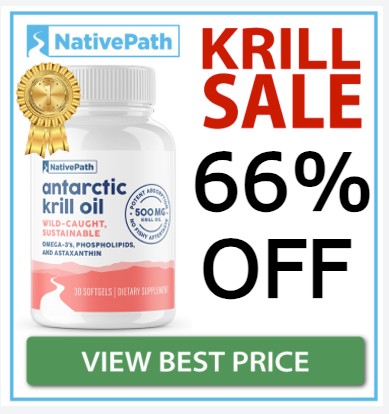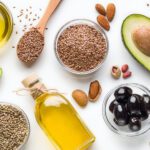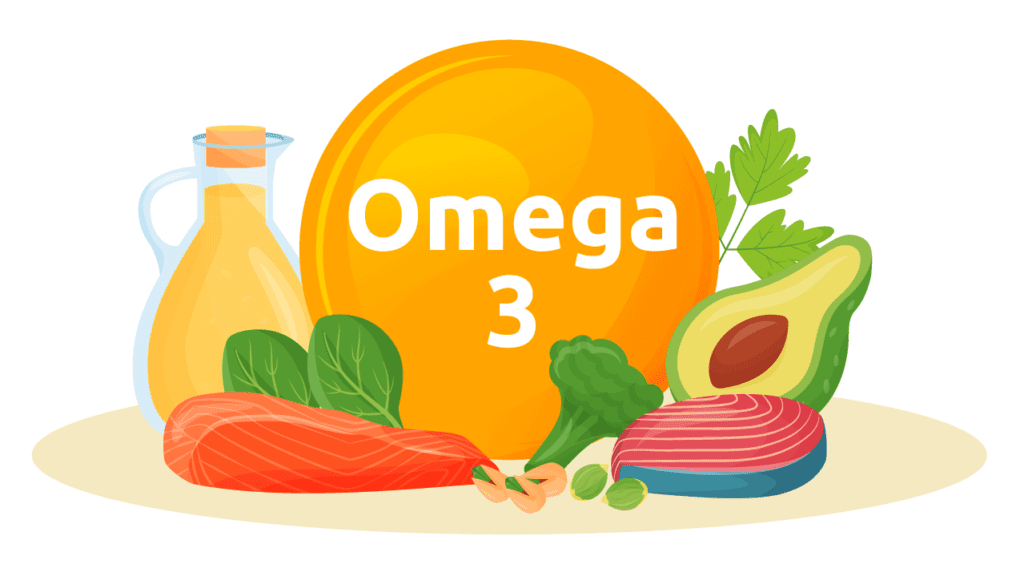

Omega-3 fatty acids, according to numerous studies, are an essential nutrient for maintaining optimal health. They comprise a group of polyunsaturated fats that you get by ingesting food since the body cannot make its own.
Omega-3s support overall health in various ways, such as aiding in the heart’s proper functioning, the nervous system, vision, cell membranes, immunity, skin, and brain function. Omega-3s are also required for energy metabolism, hormone production, and joint health.
Two crucial elements are found in omega-3s. One is eicosapentaenoic acid (EPA), and the other is docosahexaenoic acid (DHA). These long-chain polyunsaturated fatty acids are primarily found in certain types of fish and varieties of whole foods.
The EPA and DHA are biologically active forms of omega-3s. The third element in omega-3s is another fatty acid called alpha-linolenic acid (ALA). ALA is found in different plant oils such as flaxseed, soybean, and canola oils. It’s also found in certain nuts and seeds, particularly walnuts that are high in ALA. ALA must be converted to EPA and DHA before your body can use it.
How can I get more omega-3 in my diet?
There are several ways for you to add more omega-3 fatty acids to your diet.
Fatty Fish
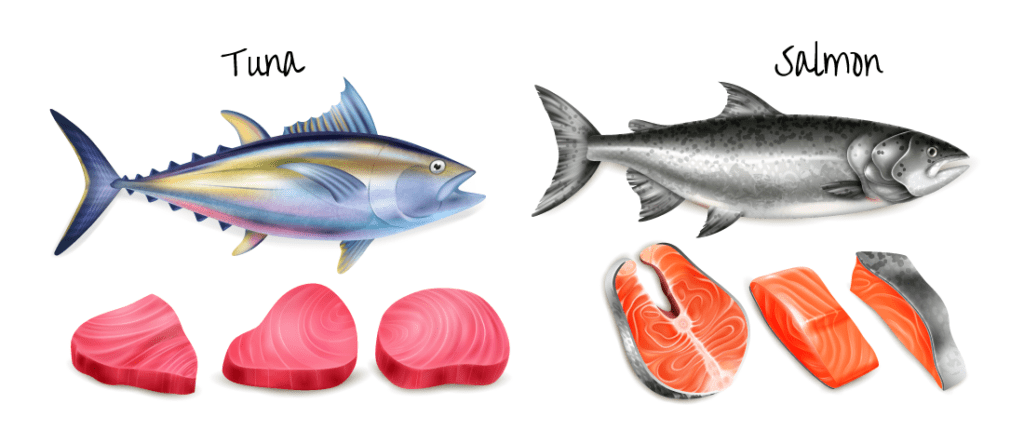

While several types of seafood contain some small amounts of omega-3 fatty acids, fatty fish is the most beneficial for heart health. Fish is recognized to be low in fat and high in quality protein. Fish is loaded with omega-3 fatty acids, vitamins, and a great source of minerals.
There are many fatty fish food selections to choose from for a delicious meal. Salmon, herring, mackerel, trout, tuna, and sardines are among the most beneficial fatty fish to consume high in omega-3 fatty acids.
While eating plenty of fish is a great way to get more beneficial fatty acids, it’s not without it downsides. Many people dislike the fattier fishes with the most benefit as they tend to have a more “fishy” taste than more palatable, flaky whitefish. More importantly, fish meat tends to contain toxic heavy metals picked up from pollution in the environment where they feed. These heavy metals like lead, cadmium, arsenic and mercury can offset the benefits of eating fish or even cause more harm than good!
If you happen to dislike eating fish, or you would prefer to avoid consuming toxic metals (you should), the alternative would be to take an omega-3 supplement such as krill oil, cod liver oil, or algal oil. Eating two fish servings a week can reduce your risk of heart disease, particularly sudden cardiac death, though supplements will contain more of the beneficial fatty acids.
Other Foods High in Omega-3:
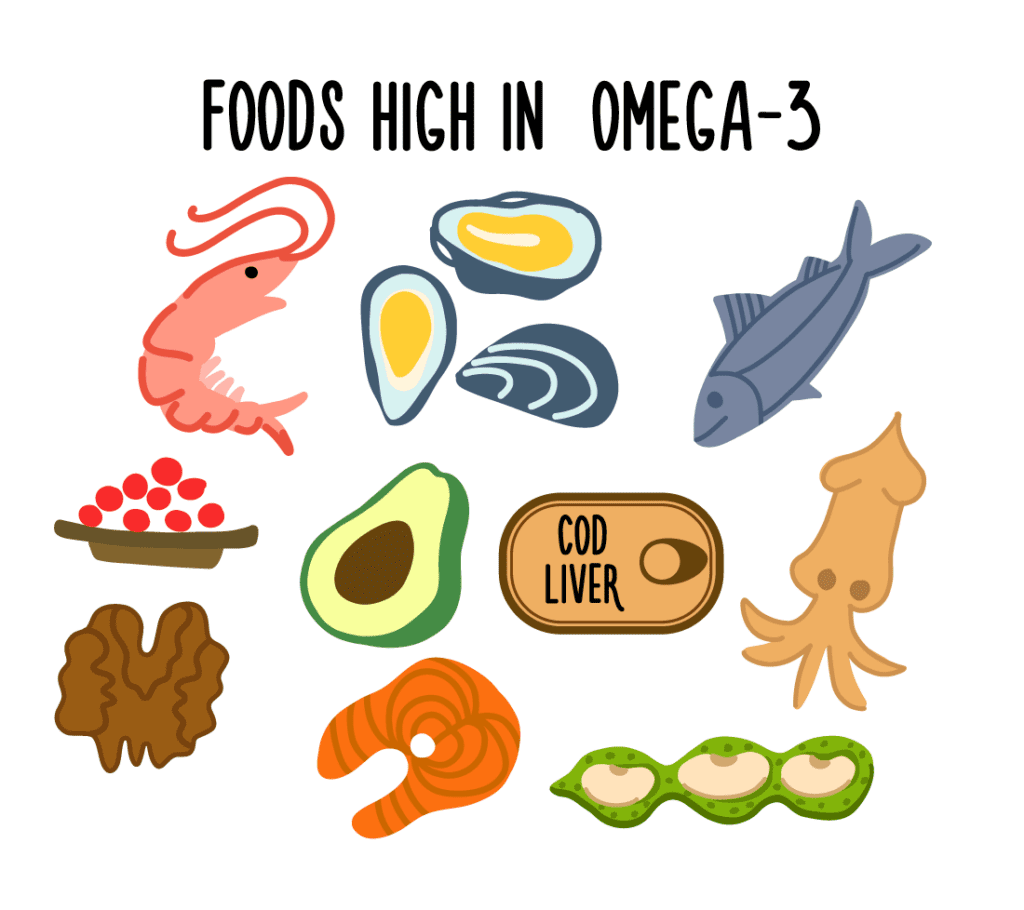

Flaxseeds: Whether in the form of oil or seed, flaxseed is the richest ALA food source.
Mixed Greens: A serving of dark leafy greens like kale and spinach provides you with over half of your daily value of omega-3s.
Walnuts: One serving of walnuts provides you with 14% of the required ALA you need every day.
Cruciferous Vegetables: Cruciferous vegetables, like Brussels sprouts, are rich in fiber, nutrients, and omega-3 fatty acids.
Hemp Seed: Hemp seeds consist mostly of oil and contain a good amount of omega-3s.
What are the health benefits of omega-3 fatty acids?
You get several essential health benefits from eating sufficient amounts of omega-3 fats in your diet:
Lower Triglycerides in Blood: Omega-3s have been shown to lower triglyceride (bad cholesterol) levels that put you at risk for heart disease and stroke.
Arthritis: Omega-3s help to restore joint health by reducing inflammation and stiffness. It also increases the effectiveness of anti-inflammatory drugs.
Anxiety and Depression: Research studies have indicated that people who have anxiety and depression see improvement in their symptoms by adding omega-3 fatty acids to their diets. A supplement is recommended because a higher dosage is required to achieve a therapeutic effect to reduce the symptoms. Check with your health care provider.
Diabetes: Research indicates that increasing omega-3s after the onset of diabetes by taking omega-3 supplements stabilized glucose and insulin levels. It may play a role in preventing the onset of type-2 diabetes.
Get and Stay Healthy!


When you ingest sufficient quantities of omega-3s, you have the opportunity to achieve optimum health. From managing heart disease to lowering blood pressure, reducing bad cholesterol, easing arthritis symptoms, and treating depression, this vital nutrient is essential to the basic health of all the cells in the body. Take charge of your health by adding omega-3 fatty acids to your diet. The benefits are tremendous.
Which supplement should I choose?
When it comes to omega-3 supplement options, Krill Oil is the clear winner. Krill is a tiny, but plentiful, crustacean that lives in very cold se water. It has more bioavailable fatty acids than fish oil, no toxic heavy metals, and no fishy burps like some people experience with fish oil supplements.
Even more, Krill Oil is wild caught AND sustainable–there’s plenty to go around. There can be as many as six billion tons of krill in the sea and at their peak their swarms can even be seen from space! There are many brands of krill oil on the market, some better than others. When choosing an omega-3 supplement we recommend starting with a reputable third-party expert review site, such as Natural Review’s Top 5 Omega-3 Supplements of 2022.



